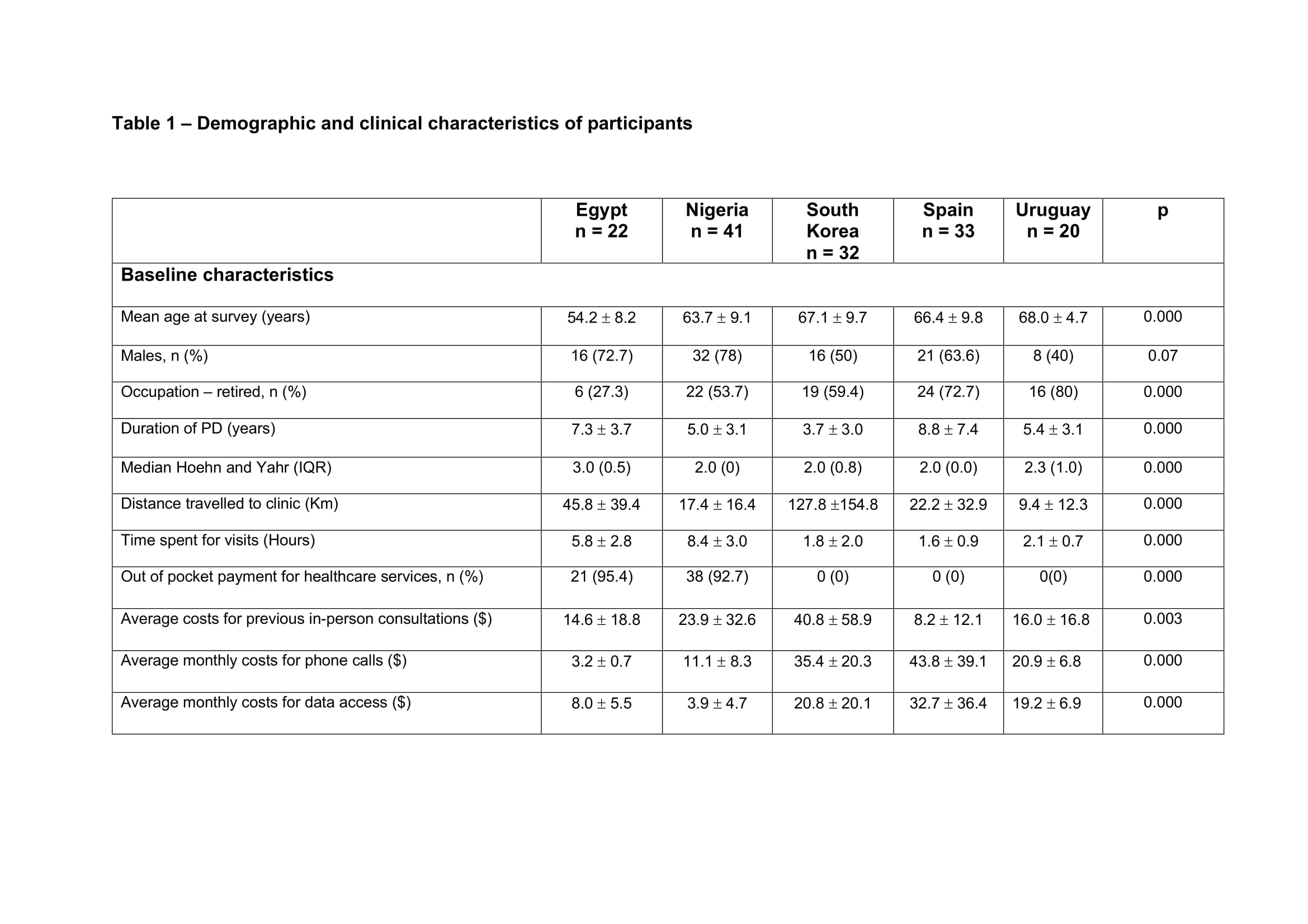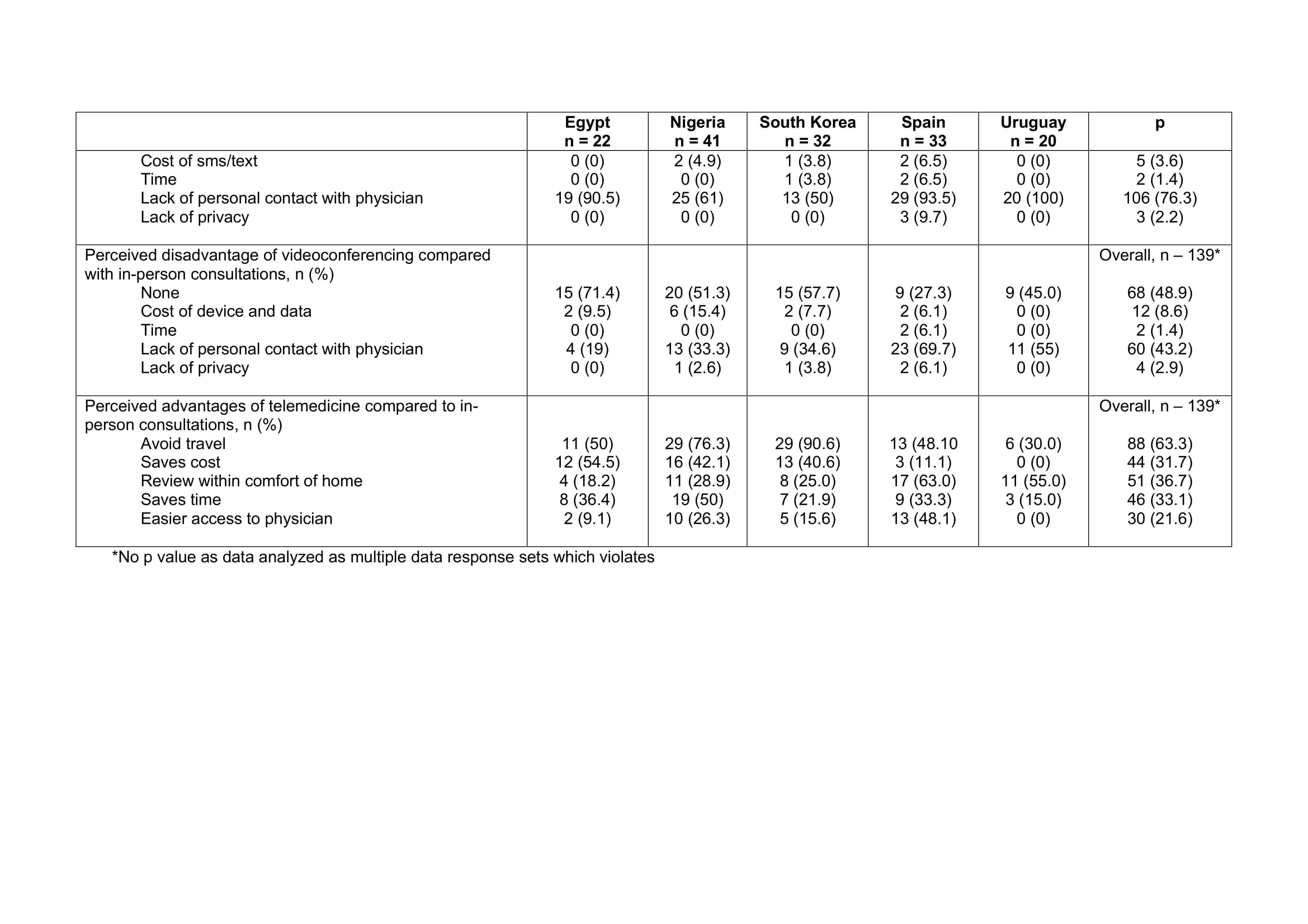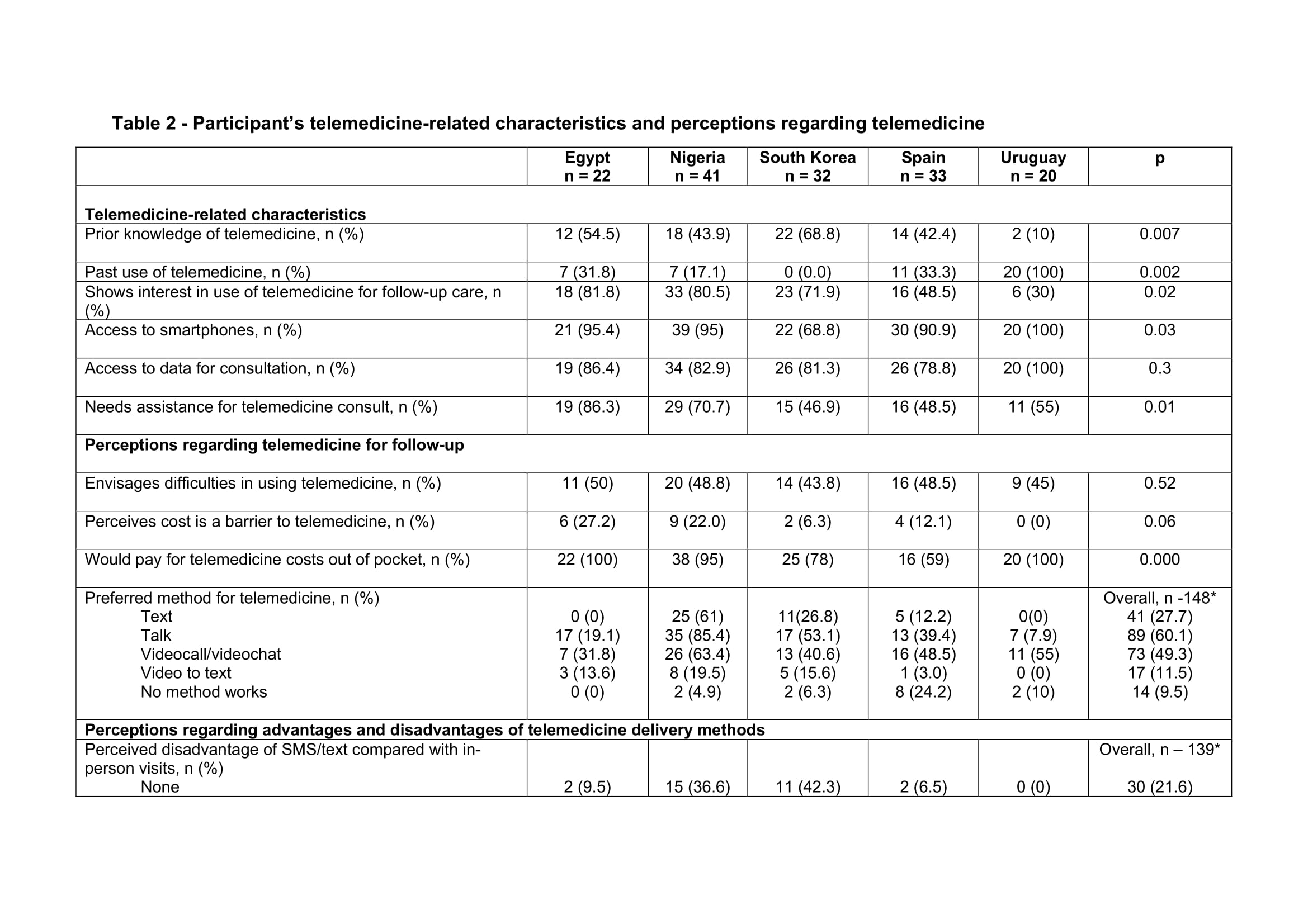Category: Technology
Objective: To assess the preferences and perceptions of persons living with Parkinson’s disease (PD) towards virtual consultations as an option for out-patient consultations.
Background: Global availability of personal technology presents patients and physicians the opportunity to provide remote alternative access to specialist services ensuring continuity of care during periods of restrictions as seen during the COVID-19 pandemic. Understanding patient’s perceptions and preferences for delivery is imperative to improve the future use of telemedicine in PDGlobal availability of personal technology presents patients and physicians the opportunity to provide remote alternative access to specialist services ensuring continuity of care during periods of restrictions as seen during the COVID-19 pandemic. Understanding patient’s perceptions and preferences for delivery is imperative to improve the future use of telemedicine in PD.
Method: This pre-implementation survey has been previously described. 1 There were 5 participating sites located in Egypt, Nigeria, South Korea, Spain, and Uruguay, chosen on the basis of MD expertise drawn from the TMSG of the MDS. Participants were consecutively attending persons with PD. Interviews were conducted in-person using a structured questionnaire to collate socio-demographic characteristics, logistics of current in-person visits, PD clinical characteristics and questions addressing the preferred method for virtual consultations as well as perceived drawbacks and benefits
Results: Data are from 148 persons with PD with a mean age of 64.2 ± 9.8 years, 93 males (62.8 %), and median HY stage of 2 (0.5). PD characteristics by country are shown in Table 1. 89 (60.1%) of participants preferred voice-call as telemedicine (TM) delivery method while 76.3% (106 of 139) and 43.2% (60 of 139) regarded lack of personal contact with the physician as a disadvantage of TM via voice-call and videoconferencing compared to in-person consultations respectively. Avoidance of travel was the best perceived benefit of TM compared to in-person consultations (88 of 139). Preferences and perceptions regarding TM by country are displayed in Table 2.
Conclusion: Understanding the perceptions of persons with PD regarding telemedicine as an alternative to in-person consultations will assist in shaping improvements in telemedicine for PD care in the future.
References: 1 Ojo O, Ahn JH, Aldaajani Z, Bajwa J, Bustillo A, Cardozo A, Dekker M, Eldayem E, Mari Z, Shalash A, Shackleford M. An International Pre-Implementation Survey to Assess the Acceptability of Telemedicine as an Alternative to In-Person Clinic Consultations For PD. In MOVEMENT DISORDERS 2021 Sep 1 (Vol. 36, pp. S155-S155). 111 RIVER ST, HOBOKEN 07030-5774, NJ USA: WILEY
To cite this abstract in AMA style:
O. Ojo, N. Okubadejo, J-H. Ahn, J. Youn, A. Shalash, E. Hamid, A. Cardozo, A. Garcia-Bustillo, Z. Mari, M. Spindler, E. Cubo. Perceptions of persons with Parkinson’s disease towards telemedicine as an alternative mode of consultation: An International Pre-Implementation Survey [abstract]. Mov Disord. 2022; 37 (suppl 2). https://www.mdsabstracts.org/abstract/perceptions-of-persons-with-parkinsons-disease-towards-telemedicine-as-an-alternative-mode-of-consultation-an-international-pre-implementation-survey/. Accessed April 2, 2025.« Back to 2022 International Congress
MDS Abstracts - https://www.mdsabstracts.org/abstract/perceptions-of-persons-with-parkinsons-disease-towards-telemedicine-as-an-alternative-mode-of-consultation-an-international-pre-implementation-survey/



